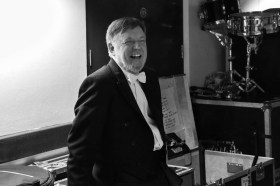You just know it’s going to end in tears when you get to go out with someone patently out of your league and, of course, it always does. You throw over all your friends, spend all your money and sacrifice every ounce of dignity and self-respect in increasingly desperate attempts to cling to something you know, in your heart of hearts, you should never have had in the first place. We’re all suckers for a pretty face and once bitten isn’t always twice shy but, for most of us, life goes on after the inevitable tissue shredding disappointment and, in time, we get to weary long-suffering friends and irritable current partners with misty eyed reminiscences about the one(s) that got away.
Don Jose is not so lucky. He cannot live without Carmen and, if you go to the Royal Opera House and see Francesca Zambello’s production of Bizet’s beloved masterpiece – and I certainly recommend that you do – then you’ll sympathize with him. Elina Garanca is irresistible as the lead: it’s impossible to keep your eyes – and ears – off her whenever she appears. Such is the commanding sexuality with which Garanca imbues Carmen that she is in danger of eclipsing everyone else on stage. Liping Zhang does well as Don Jose’s sweet-natured betrothed but she never stands a chance against the voluptuous gypsy girl while Ildebrando d’Arcangelo fails to entirely live up to either his wonderful name or the famous Toreador’s Song – although he is hamstrung by having to make his entrance on horseback.
Tanya McCallin’s Seville is a dusky, oppressive place where soldiers jostle with fortune tellers, bandits, gypsies and a lot of children. The high, burnished walls tower over the action and the claustrophobic heat creates a cauldron in which passions flare: none more so than Don Jose’s. Roberto Alagna’s masculine performance makes it hard to condemn him for his destructive, jealous rage as he spirals out of control: he should know better but so should we all.





